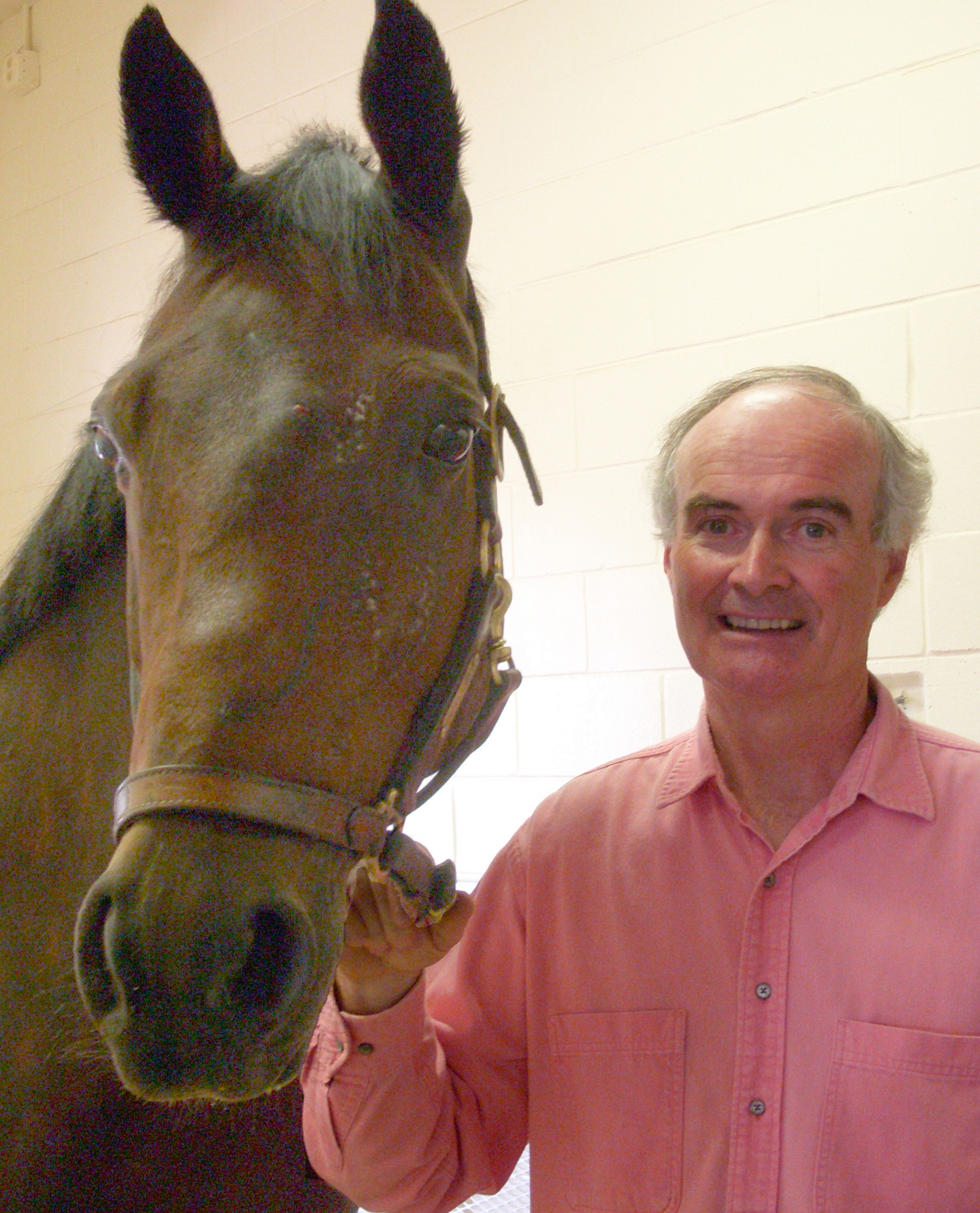Unique colic surgery course draws international participation
By Sarah Carey
One of the most common health problems horses will encounter in their lifetimes is colic. Veterinarians treating horses with this condition must determine whether the affected animal can be treated medically, or has issues only surgery can resolve. In order to equip these veterinarians with the skill set and confidence they need when surgery is the only option for colic treatment, Dr. David Freeman, a professor of equine surgery at the UF College of Veterinary Medicine, developed a unique course that has drawn practitioners from all over the world to UF for training.
The 4th International Colic Surgery Conference and Laboratory was held Dec. 5-7 on UF’s College of Veterinary Medicine campus — the third time it’s been held at UF. Freeman presented the course at the University of California, Davis, in 2018.
Freeman said that “The main reason I organize this course is to improve the quality of surgery that veterinarians offer, and that horse owners from around the world expect.”
This year, participants in the course hailed from ten different countries, including Austria, Germany, Poland, the United Kingdom, Canada, Israel, Japan, Italy, Colombia and the United States.
“I’ve given smaller versions of this course in Europe and in South America, but the main course is the one we hold here,” Freeman said.
The course consists of lecture and hands-on learning opportunities, and the focus is exclusively on surgery, with no presentations on anesthesia or diagnosis, he added.
“It’s really aimed at an advanced audience, at people who do colic surgery, but want to improve their results and learn about different ways of dealing with challenging surgical cases,” Freeman said. “When I started doing surgery, colic surgery was only done at major universities; very few, if any private practices were doing it. Now, there are so many private practices performing colic surgery that there is an expectation that if a horse owner takes their horse to a private practice, they can have the procedure done there.”
Feedback from participants in the years the course has been offered has been extremely positive, Freeman said, adding that aside from an email he sends to a specific list of organizations and practitioners, he does very little advertising. Still, with the number of participants capped at 30, there is nearly always a waiting list.
“Most people hear about the course through word of mouth from colleagues,” Freeman said.
Some participants came back and took the course again, he said.
“They realized that there was a lot of material they still needed to learn,” Freeman said. I’ve received unsolicited feedback from people who have said things like, ‘your course has saved horses’ lives in my hospital,’” Freeman said.
Other participants have stated that thanks to what they learned from the course, they are now able to successfully perform colic surgeries they were unable to do in the past.
The course is personally as well as professionally rewarding to offer, because it’s obvious to Freeman that veterinarians are benefiting, and more equine lives are being saved as a result of shared knowledge.
“If you go back to the paradigm of teaching, research, patient care and service that we provide as a college, this course is a little bit of all those things,” Freeman said. “While there are many other things we do, such as sharing our knowledge at professional meetings, this course is an example of how we at UF were able to take the initiative and offer the learning opportunity ourselves.”

















